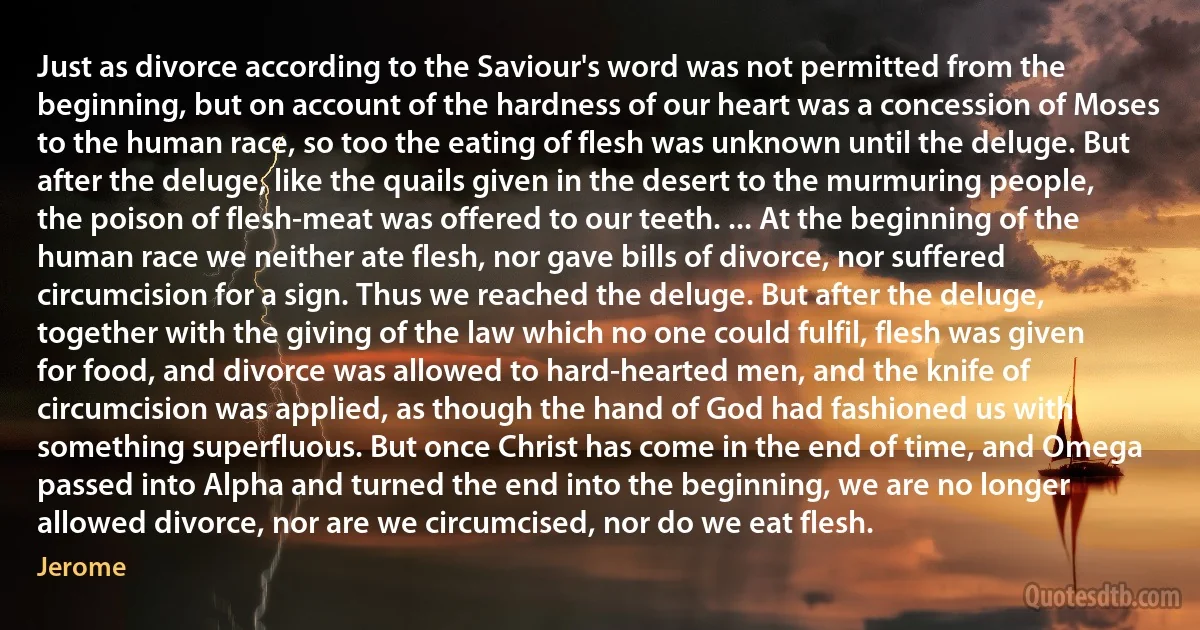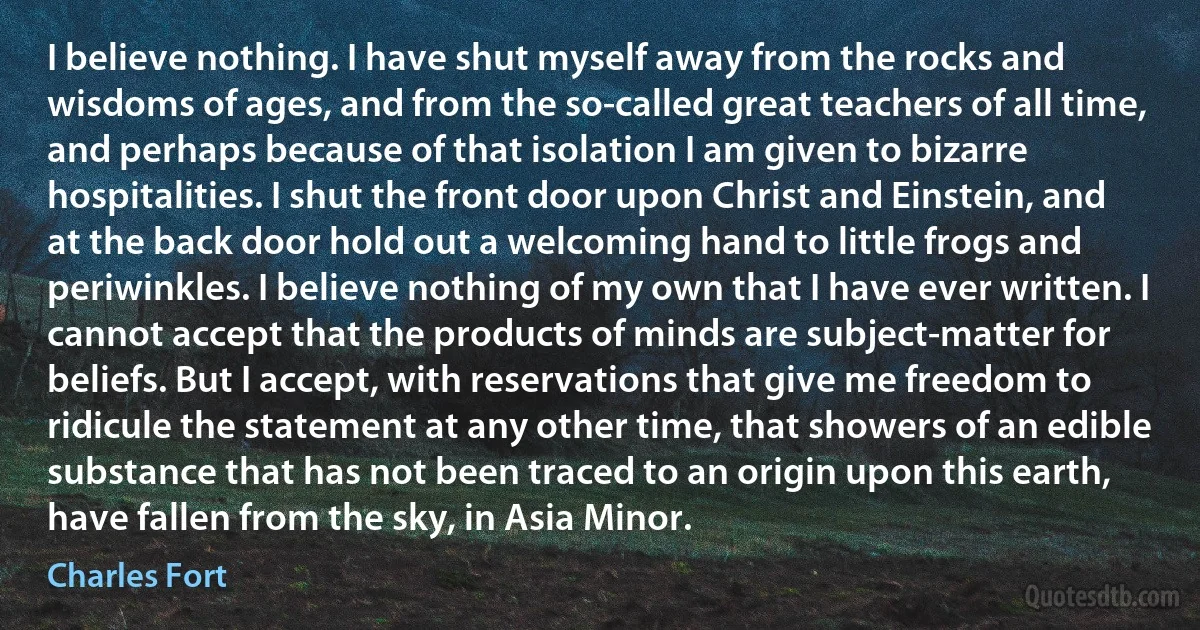Given Quotes - page 93
Recalling all the erroneous things that doctors have been able to say about sex or madness does us a fat lot of good. I think that what is currently politically important is to determine the regime of verediction established at a given moment ... on the basis of which you can now recognize, for example, that doctors in the nineteenth century said so many stupid things about sex. ... It is not so much the history of the true or the history of the false as the history of verediction which has a political significance.

Michel Foucault
The new governmental reason does not deal with what I would call the things in themselves of governmentality, such as individuals, things, wealth, and land. It no longer deals with these things in themselves. It deals with the phenomena of politics, that is to say, interests, which precisely constitute politics and its stakes; it deals with interests, or that respect in which a given individual, thing, wealth, and so on interests other individuals or the collective body of individuals. ... In the new regime, government is basically no longer to be exercised over subjects and other things subjected through these subjects. Government is now to be exercised over what we could call the phenomenal republic of interests. The fundamental question of liberalism is: What is the utility value of government and all actions of government in a society where exchange determines the value of things?

Michel Foucault
In France at least, the history of science and thought gives pride of place sciences, sciences of the necessary, all close to philosophy: one can observe in their history the almost uninterrupted emergence of truth and pure reason. The other disciplines, however - those, for example, that concern living beings, languages, or economic facts - are considered too tinged with empirical thought, too exposed to the vagaries of chance or imagery to age old traditions and external events, for it to be supposed that their history could be anything other irregular. At most, they are expected to provide evidence of a state of mind, an intellectual fashion, a mixture of archaism and bold conjecture, of intuition and blindness. But what if empirical knowledge, at a given time and in a given culture, did possess a well defined regularity.

Michel Foucault
Charles was a stubborn Swede, you know, and he himself never felt the need to explain his feelings about where he stood and about past statements. But I feel free now to elaborate on his actual attitudes. He never wanted to be regarded as a hero or leader, and he never had political ambitions. His prewar isolationist speeches were given in all sincerity for what he thought was the good of the country and the world... He was accused of being anti-Semetic, but in the 45 years I lived with him I never heard him make a remark against the Jews, not a crack or joke, and neither did any of our children.

Anne Morrow Lindbergh
Because most children are highly imaginative, it is supposed by some that to reach maturity we ought to leave imagination behind, like the habit of smearing our faces with jam or chocolate. But an adult in whom imagination has withered is mentally lame and lopsided, in danger of turning into a zombie or a murderer. It is the creative imagination that has given our ruthless bloodthirsty species its occasional gleams of nobility, its hope of rising above the muck it spreads.

J. B. Priestley
We should be offended when children are denied a proper education. We should be offended when children are told they will spend eternity in hell. We should be offended when medical science, for example stem-cell research, is compromised by the bigoted opinions of powerful and above all well-financed ignoramuses. We should be offended when voodoo, of all kinds, is given equal weight to science. We should be offended by hymen reconstruction surgery. We should be offended by 'female circumcision', euphemism for genital mutilation. We should be offended by stoning.

Richard Dawkins
Sceptical rational inquiry is always the best approach. [...] we can think independently, be truly open-minded. That means asking questions, being open to real corroborated evidence. Reason has liberated us form superstition and given us centuries of progress. We abandon it at our peril.

Richard Dawkins
This is the archetypal suburban-conservative nightmare - anonymous hordes of leftist boat-rockers viciously assaulting the champion of the decent people, who is just a really nice guy given to tending his lawn and minding his own business. Being "nice" is a central part of the Brooks yuppie's guilt-proofing self-image rationale; so long as you're the kind of guy who lets people merge on highways, stands politely in line at Starbucks, doesn't put garish Christmas decorations on his lawn and pays his taxes, you're not really doing anything wrong. It gets a little tiring after a while, hearing people who vote for wars tell you how nice they are.

Matt Taibbi
The fact that human intuition is ill suited to situations involving uncertainty was known as early as the 1930's, when researchers noted that people could neither make up a sequence of numbers that passed mathematical tests for randomness nor recognize reliably whether a given string was randomly generated.

Leonard Mlodinow



